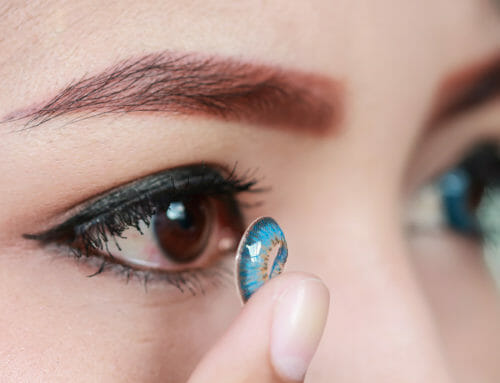
Diabetes And Eye Sight: What You Need To Know
Diabetes is one of the leading causes of preventable sight loss in the UK and eye damage is a major complication of diabetes.
With diabetes comes an increased risk of developing certain eye disorders, and diabetic eye diseases can affect vision in a number of ways.
Eye conditions include diabetic retinopathy, diabetic macular oedema (DMO), cataract, and glaucoma.
Diabetic retinopathy
Retinopathy is an eye disease that people living with diabetes are more at risk of developing. It is a condition where high glucose levels can cause damage in the small blood vessels of the retina (the back of the eye). The blood vessels may become blocked and begin to leak fluid into the retina. The leakage of fluid may cause swelling of the surrounding tissue and the macular, which can lead to blindness. Symptoms include floaters, blurred or fluctuating vision, and even dark or empty areas in vision.
Diabetic macular oedema
Diabetic macular oedema (DMO) is the most common cause of vision loss in people with diabetic retinopathy. Poor blood sugar control and medical conditions, such as high blood pressure, may increase the risk of blindness for people with DMO.
Cataract
Diabetics are also more at risk of developing cataracts. The lens of the eye is filled with transparent proteins. A cataract occurs when these proteins clump together and become opaque, blocking vision. Cataract removal surgery can replace the natural crystalline lens to restore vision.
Glaucoma
Glaucoma is an eye disease where pressure builds inside the eye, which eventually causes damage to the optic nerve and could result in total vision loss. Diabetes is one of the main causes of glaucoma. Symptoms include eye pain, eye redness, tunnel vision, or even a sudden loss of vision.
Controlling blood sugar, blood pressure and cholesterol levels can reduce the risk of developing eye diseases. Quitting smoking, keeping fit and regular retinal screening are also effective measures to prevent vision loss.
Diabetes can cause short-term blurriness or double vision due to hypoglycemia (low blood sugar). Low blood sugar can make it difficult for the brain to process and focus vision. Changes in sight should be picked up early and reported to an ophthalmologist so treatment can begin at the right time and help prevent sight loss. Early diagnosis is crucial as most sight-threatening diabetic problems can be managed if spotted in the early days.
Comprehensive annual dilated eye exams allow your ophthalmologist to examine the retina and optic nerve thoroughly. Regularly monitoring and reporting changes in vision allows your ophthalmologist to begin appropriate treatment as soon as possible should disease occur.

About the expert
Mr Hamada | Consultant Ophthalmologist and Corneal Surgeon
MD, MSc, DO (hons), FRCSEd, FRCOphth I am Samer, founder and consultant ophthalmic surgeon with over 20 years’ experience in ophthalmology. I am a world-renowned specialist in cornea, cataract and refractive surgery. I’m not only a leading surgeon but also the only dual fellowship trained in corneal diseases in children from reputable institutions in the UK. At Eye Clinic London I work closely with other consultant ophthalmologists, optometrists and orthoptists to achieve the best outcomes for our patients. Our main aim is to make sure our patients get the safest and best treatments available to them. We put your safety before anything else so you can rest assured that if you choose us you will be in the best and safest hands.



